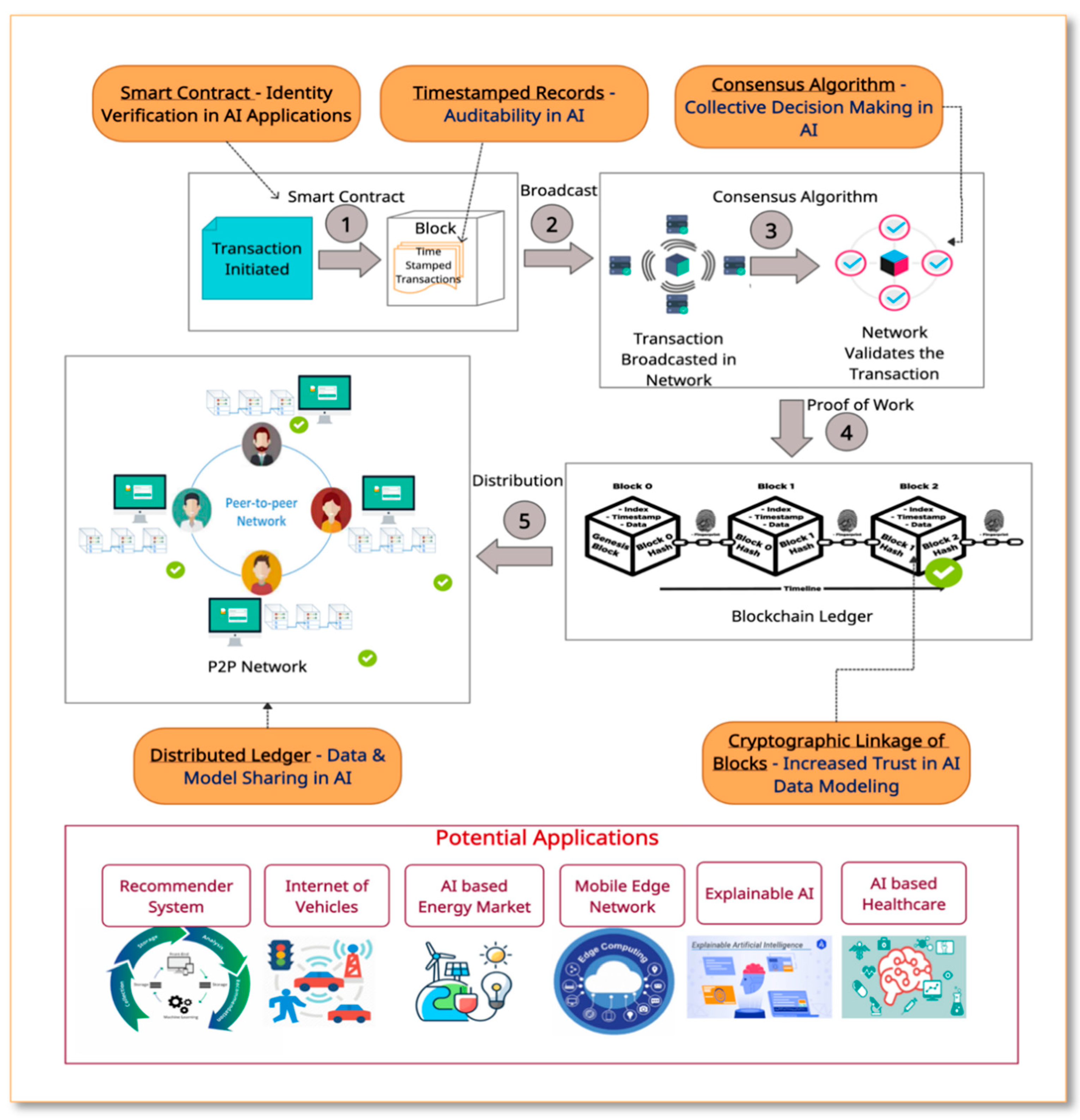
Navigating Challenges in Blockchain AI Development

Exploring the Complex Landscape: Navigating Blockchain AI Development Challenges
In the dynamic intersection of blockchain and artificial intelligence (AI), developers face a myriad of challenges that require strategic solutions for successful implementation.
Integration Dilemmas: Uniting Blockchain and AI Technologies
The initial hurdle in Blockchain AI development lies in seamlessly integrating two intricate technologies. Ensuring compatibility and smooth collaboration between blockchain’s decentralized structure and AI’s complex algorithms requires meticulous planning and innovative solutions.
Scalability Struggles: Meeting the Demands of a Growing Network
As blockchain networks expand, the scalability challenge becomes more apparent. The resource-intensive nature of AI algorithms exacerbates this issue. Developers must find scalable solutions to accommodate the increasing demands on computational power and storage capacity, ensuring efficiency in larger and more complex ecosystems.
Data Privacy and Security Concerns
The combination of blockchain and AI amplifies the significance of data privacy and security. While blockchain inherently provides a secure and transparent environment, integrating AI introduces new vulnerabilities. Striking a balance between data accessibility for AI processing and maintaining the immutability of blockchain records is a delicate task that demands careful consideration.
Algorithmic Bias: Addressing Fairness in AI Models
AI algorithms are prone to biases based on the data they are trained on. In the context of blockchain, where transparency and fairness are paramount, addressing algorithmic biases becomes a critical challenge. Developers must implement measures to detect and rectify biases in AI models to ensure ethical and unbiased decision-making within blockchain systems.
Interoperability Challenges: Enhancing Cross-Platform Functionality
Blockchain AI development faces the hurdle of ensuring interoperability between different platforms and systems. Seamless communication between diverse blockchain networks and AI applications is crucial for fostering a cohesive and interconnected digital landscape. Overcoming interoperability challenges is essential for the widespread adoption and effectiveness of these integrated technologies.
Smart Contract Complexity: Balancing Automation and Security
Smart contracts, a fundamental component of blockchain, gain complexity with the integration of AI. While AI-driven smart contracts offer enhanced automation and adaptability, striking a balance with security measures becomes paramount. Developers must navigate the challenge of making smart contracts sophisticated yet resilient to vulnerabilities and potential exploits.
Regulatory Uncertainties: Navigating Legal and Compliance Issues
The evolving landscape of blockchain and AI technologies often outpaces regulatory frameworks. Developers grapple with the challenge of navigating legal uncertainties and ensuring compliance with evolving regulations. Proactive engagement with regulatory bodies and a comprehensive understanding of the legal landscape are crucial for the successful development and deployment of blockchain AI solutions.
Talent Shortages: Filling the Skills Gap
Blockchain AI development demands a unique skill set that is currently in high demand but short supply. Developers need expertise in both blockchain technology and AI algorithms, making it challenging to find professionals with the necessary skills. Addressing this talent shortage is pivotal for accelerating the development and deployment of robust blockchain AI solutions.
Continuous Adaptation: Embracing an Evolving Landscape
Perhaps the most overarching challenge in Blockchain AI development is the need for continuous adaptation. The rapid evolution of both blockchain and AI technologies requires developers








